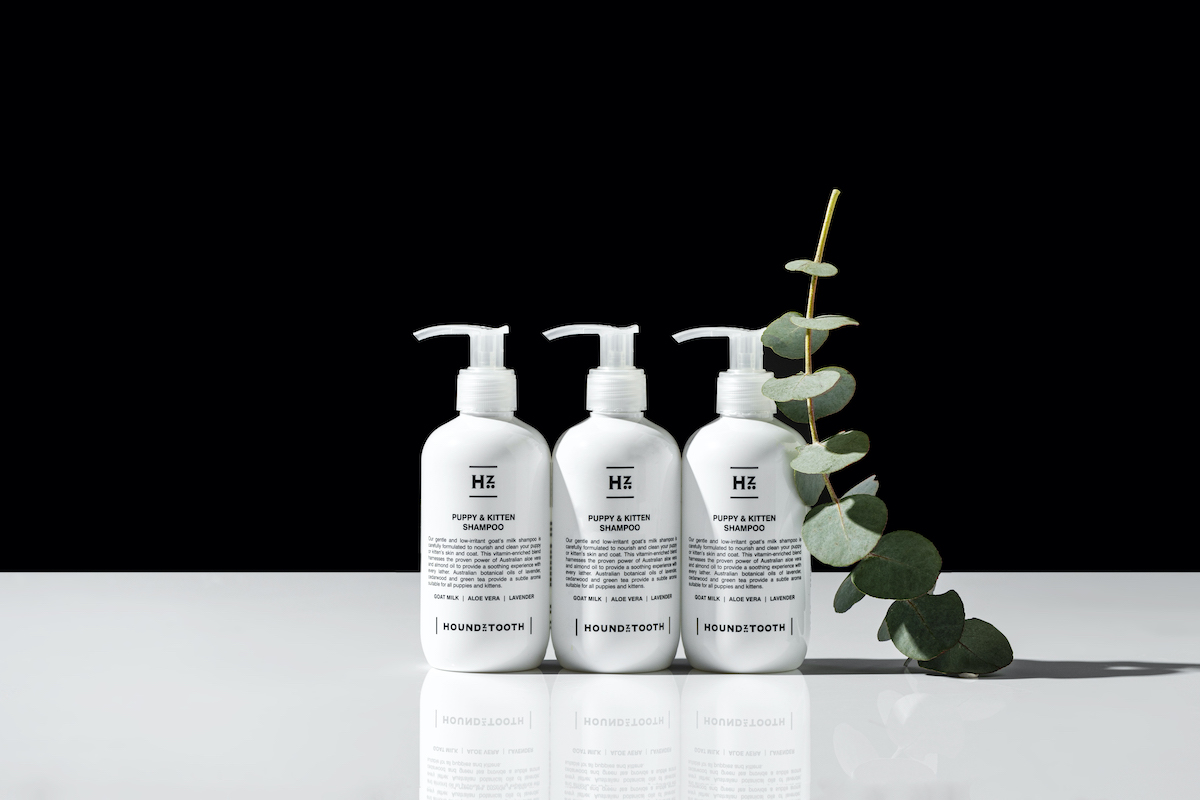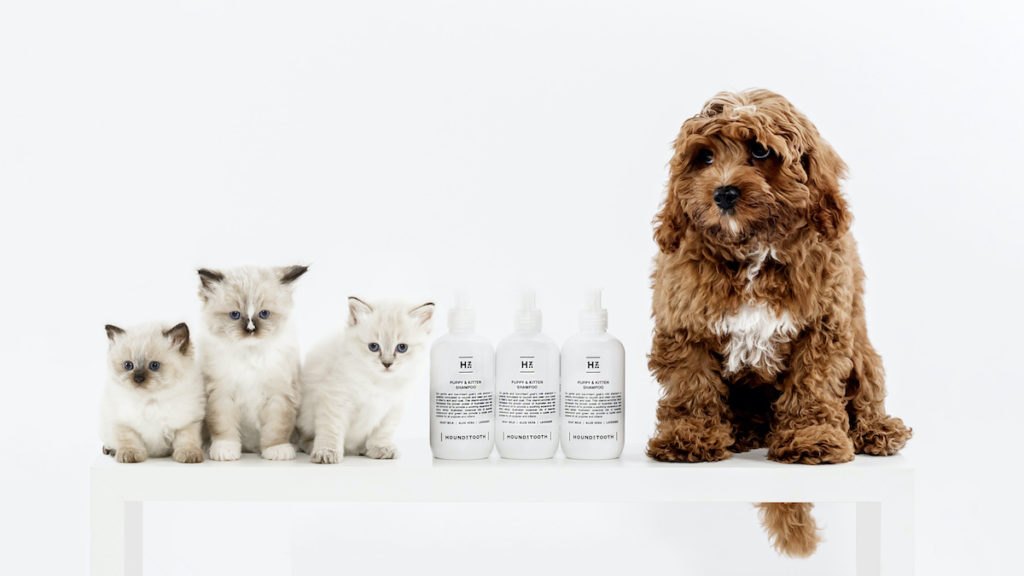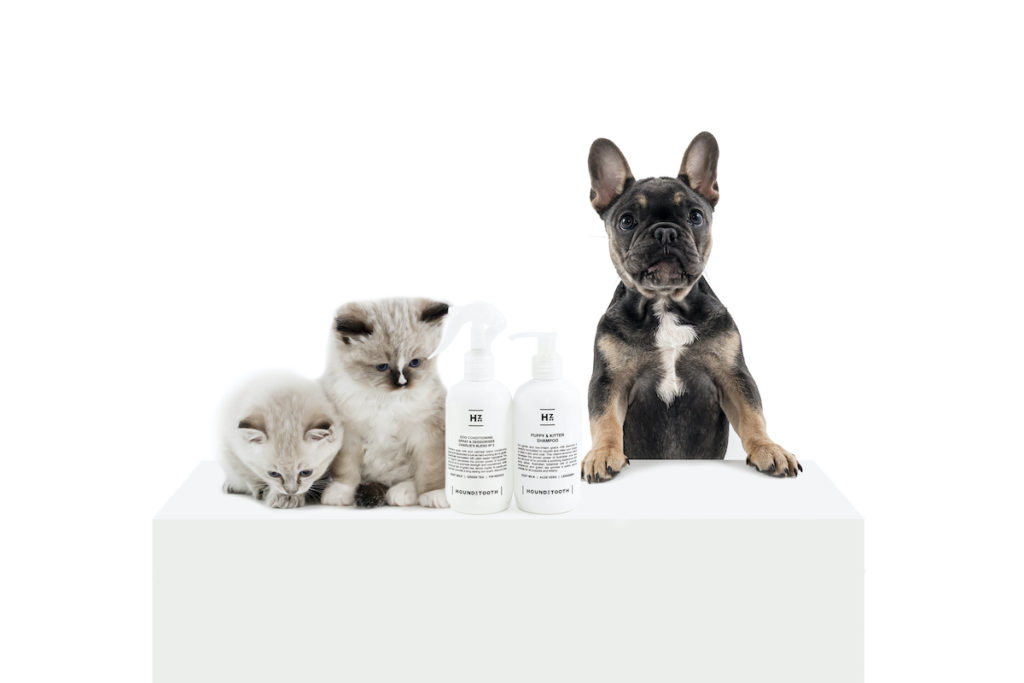Choosing The Right Grooming Product For Your Puppy & Kitten

Welcoming your furry new family member
As with welcoming any new member to your family, bringing home a new puppy or kitten means a lot of advance preparation. You may have already picked out their chic new collar, comfy bed and functional, safe chew toys, but what about their pet shampoo and conditioner?
Keeping your pet in good health is just as important as keeping them entertained. Our Australian-made Puppy & Kitten Shampoo is our naturally-derived goat milk blend that’s safe for both puppies and kittens, and is specifically formulated to be gentle on their young skin.
What to look for in a shampoo for puppies and kittens
As with all newborns, puppies and kittens need to be cared for in a way that accommodates their sensitive skin. The shampoo you choose for grooming should be a natural, nourishing and low-irritant blend that clearly labels the ingredients used.
Natural ingredients
When it comes to your pets (and yourself!), choosing natural grooming products should always be your priority.
Products containing only locally sourced natural ingredients are often the safest ones to use on your pet’s skin, and you can rest assured knowing they won’t contain any nasty chemicals.
It is important to steer clear of harmful or environmentally unfriendly ingredients that may negatively impact your pet’s (or the environment’s) health. At Houndztooth, all of our products are free from SLS, EDTA, palm oil, parabens, artificial colours and harsh ingredients.
Gentle on the skin

Puppies and kittens have sensitive skin, which means that any shampoo you use for your youngest pets should be gentle and low-irritant. Formulating a low-irritant pet shampoo or conditioner all comes down to the ingredients used.
We have specifically formulated our Puppy & Kitten Shampoo with lavender, cedar wood and green tea essential oils because they are gentle and safe to use on puppies and kittens. For your pet’s comfort, our formulation includes only low volumes of these essential oils.
Hydrate and moisturise
Dry skin can be a common and painful problem for puppies (and sometimes for kittens). When the skin begins to dry out, it also becomes itchy. As you can imagine, young puppies find it incredibly difficult to resist the itch.
Scratching their itch can lead to cut skin and bleeding, which can result in more serious skin issues. The soothing and moisturising ingredients in our Puppy & Kitten Shampoo will help to nourish and hydrate your puppy’s dry skin.
Our Puppy & Kitten Shampoo
Made in Australia with all-natural ingredients, our Puppy & Kitten Shampoo has been carefully formulated to gently cleanse and nourish your furry new family member’s skin.
A blend of aloe vera, almond oil and other natural goodies, our Puppy & Kitten Shampoo provides a soothing experience with every wash.
Bathing your new puppy or kitten
It is important to get puppies and kittens comfortable with being washed from an early age. We recommend starting gradually by making their initial baths quick and enjoyable, and rewarding them with lots of praise and treats.
As a reward, we suggest some playtime straight after their bath. However, bath time is often followed by toilet time, so remember to always take your puppy out for a wee before play time begins.
Bath time
As you get your puppy or kitten used to being groomed, be sure to brush out any excess fur, tangles and built-up dirt before bath time begins. We recommend using our Charlie’s Blend No.3 Conditioning Spray & Deodoriser to help detangle their coat before and after the bath.

When filling up the tub or sink with warm water, remember that the water should never be hot – only warm. Always test the temperature before washing your pet, so as not to burn or scald their skin.
Wet your pet with warm water, avoiding their eyes, ears and head. You should never dunk your pet’s head under the water or splash water in their face. Instead, you can clean their face by wiping it down with a wet towel.
Apply a small amount of natural shampoo to their skin and gently massage their back, legs, belly and tail until the shampoo has lathered and any excess dirt has been washed away. Rinse the shampoo thoroughly with warm water and repeat if necessary.
After removing them from the tub, gently dry your puppy or kitten with a towel.
Puppies and kittens (especially kittens) can become distressed during bath time. Enlisting the help of someone to help hold your cat while you wash them can make for a smoother process. If your pet is biting or scratching excessively, we recommend talking to your vet.
Our Puppy & Kitten Shampoo is the perfect addition to your new pet’s grooming routine
With so much love for our furriest little family members, we’ve dedicated ourselves to formulating a shampoo just for them.
Packed full of all-natural and low-irritant ingredients, our Puppy & Kitten Shampoo is safe, gentle and soothing on your puppy or kitten’s sensitive skin.
